Ingenious recipes for stunning shots

Back in the days of film you’d have to switch the roll in your camera between ‘daylight’ and ‘tungsten’, depending on whether you were shooting outdoors or inside. Now, cameras can adapt to almost any conditions with a range of white balance (WB) settings. But what is WB and how does it work?
Well, different light sources have a variety of colour temperatures. For example, tungsten (light bulb) lighting gives the lowest colour temperature that we’ll usually shoot under, at around 3000 K (degrees Kelvin). Ascending the scale are sunrise or sunset, followed by clear daylight, electronic flash and cloudy conditions, while shady daylight tops the list at around 8000 K.
To keep your whites white, and your greys neutral, the WB of your camera needs to react with the colour temperature of the light source. An area of confusion is that a light source with a colour temperature that’s low on the Kelvin scale, like candlelight, will produce a ‘warm’ colour balance with a more orange or yellow cast. Conversely, shady daylight with a
high colour temperature produces a ‘cool’ colour cast, with a shift to the blue end of the spectrum.
Human vision is very adept at reacting to ranging colour temperatures, but digital cameras need some help. The ‘Auto’ WB setting in your camera works by assuming that the brightest area of a scene is white or neutral grey. This works most of the time, but it can be fooled. Where the brightest area is strongly coloured, like the sky at sunset, it can counteract and drain the colour of a scene by trying to ‘correct’ it…
Project one: Core skills
What is white balance?
Matthew Richards explains colour temperature and shares a few tricks on how to use it to make shots pop
Auto options
هذه القصة مأخوذة من طبعة Summer 2019 من N-Photo: the Nikon magazine.
ابدأ النسخة التجريبية المجانية من Magzter GOLD لمدة 7 أيام للوصول إلى آلاف القصص المتميزة المنسقة وأكثر من 9,000 مجلة وصحيفة.
بالفعل مشترك ? تسجيل الدخول
هذه القصة مأخوذة من طبعة Summer 2019 من N-Photo: the Nikon magazine.
ابدأ النسخة التجريبية المجانية من Magzter GOLD لمدة 7 أيام للوصول إلى آلاف القصص المتميزة المنسقة وأكثر من 9,000 مجلة وصحيفة.
بالفعل مشترك? تسجيل الدخول
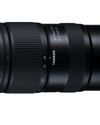
Tamron 28-75mm f/2.8 Di III RXD G2
The original version broke the mould for ‘trinity' standard zooms. The G2 enhances handling and performance further still
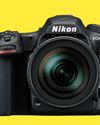
Nikon D500
Nikon's flagship DX-format DSLR is a modern classic. And while it hasn't been out of production for long, it left a hole in Nikon's camera line-up that's never been filled

Laurence Griffiths
With so much sporting action this summer, Laurence Griffiths of Getty Images reveals how to catch every goal at the Euros, details Getty Images' 24/7 Olympics coverage and why he always has a wide-angle ready. Keith Wilson managed to grab him before kick-off...
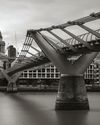
Ghost town
Adam Waring uses ND filters to subdue the hustle and bustle when shooting busy cities

Creative cities
Experienced travel photographer Matt Higgs provides top tips for stunning shots of city sights

If at first you don't succeed...
Tom travels to the other side of the world to have another go at shooting an elusive image and displays the power of his perseverance
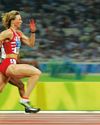
Shoot the summer of sports
Have the Olympics and Euros inspired you to photograph sport? Mike Harris shows you how to score a portfolio of top shots

Osprey & prey
Birds of a feather Gary Jones and Leigh Pugh photograph ospreys from a purpose-built hide
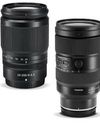
Superzoom lenses
These lenses will have you in for a long stretch, some more than others in the wide-angle to telephoto stakes
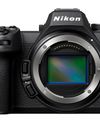
Nikon Z 6III
With a revolutionary 'partially stacked' full-frame sensor, the Z 6III fits flagship camera features in an compact enthusiast-level body